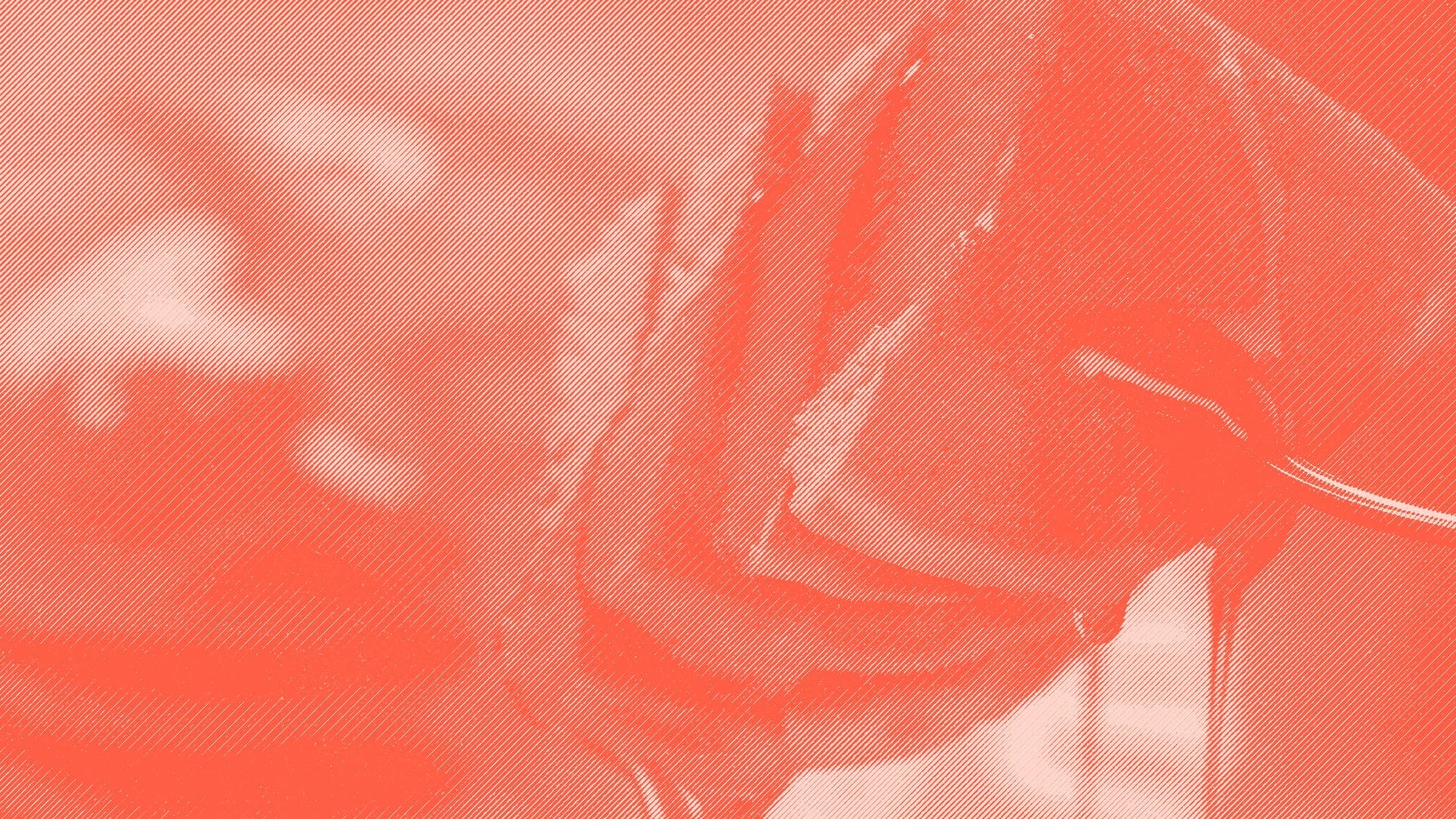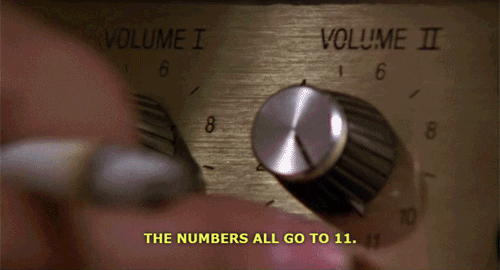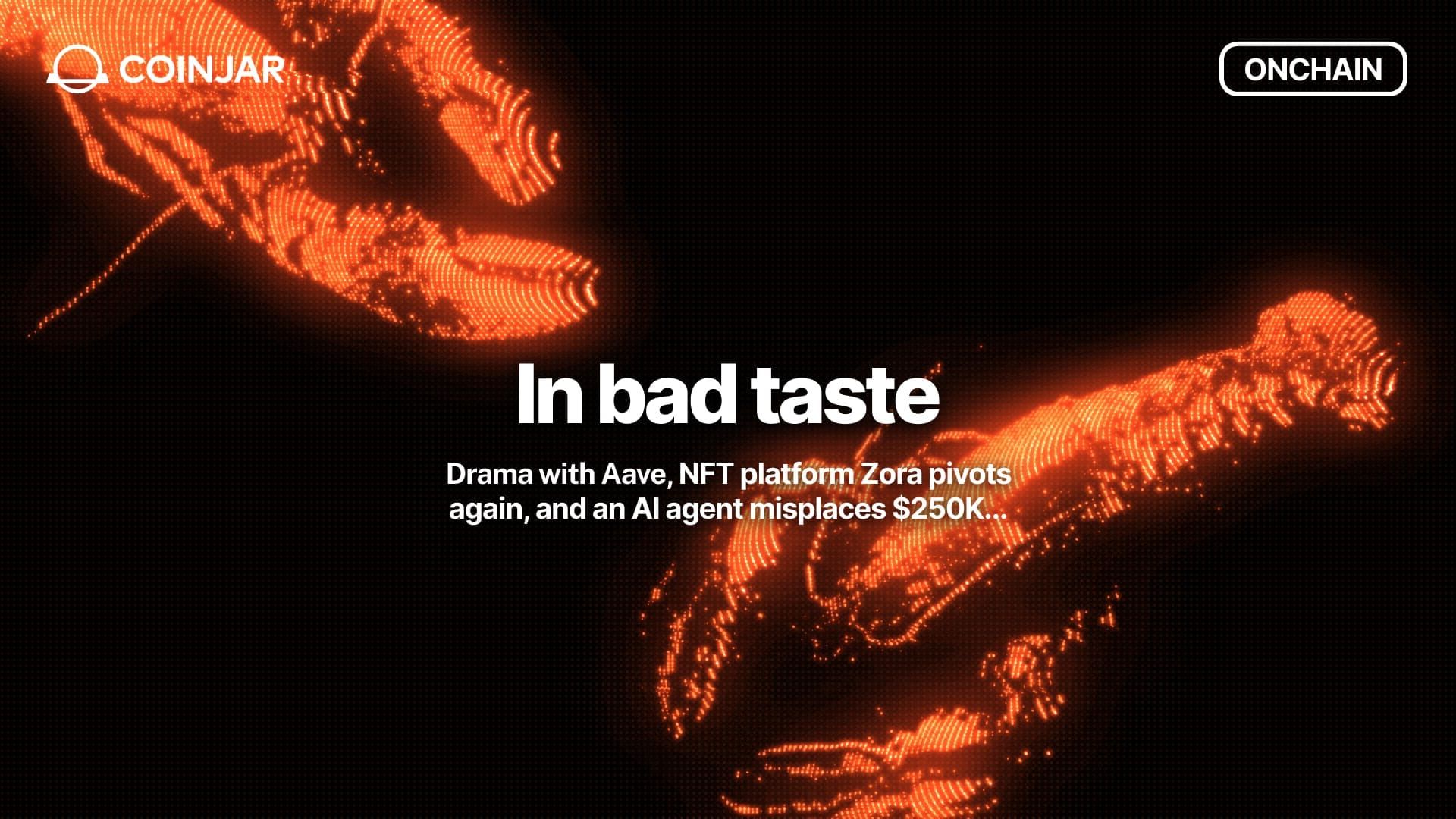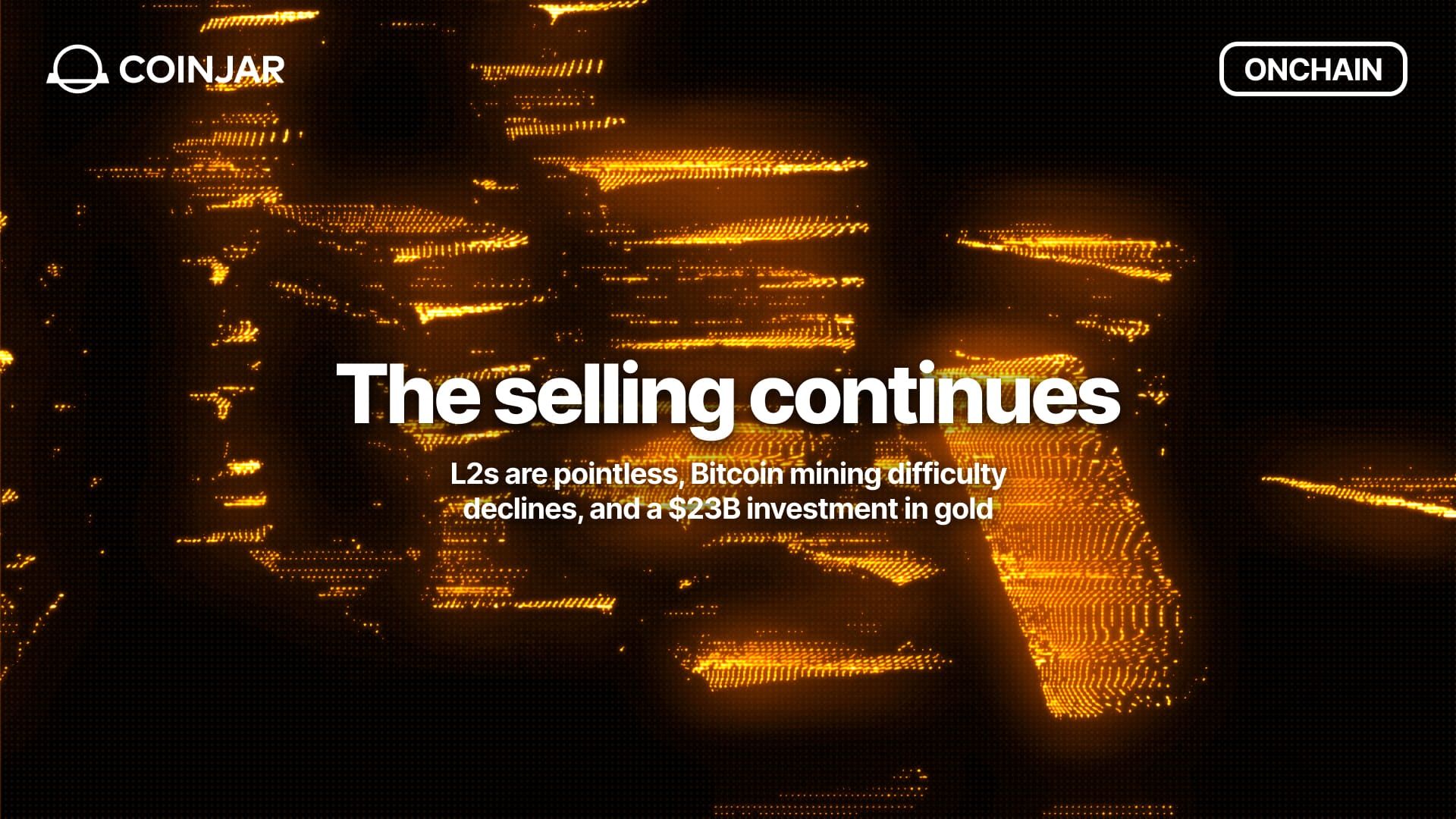Offchain: A Half of the Whole
April 18, 2024
Share this:

So, here we are again. The Bitcoin block reward is about to halve, reducing the amount of new BTC entering the system each block from 6.25 to 3.125.
Let me say upfront that the Halving is simultaneously the most important day in the crypto calendar and its most meaningless. Important because the impact on the economic landscape of a 50% reduction in supply is profound. Meaningless because it’s scheduled so far in advance that you may as well be saying, “Yes, Tuesday is an important day because on Tuesday I eat pancakes.”
The three previous Halvings occurred against a backdrop of anxiety and malaise. In both 2012 and 2016, Bitcoin felt precariously positioned, internally contested and unloved by the world at large. Push it too hard in any given direction and it could simply collapse. In 2020, it was the world that felt on edge. What impact could the Halving possibly have against the backdrop of the biggest global catastrophe since the Second World War?
History, obviously, showed the error of such thinking.
This time, though. This time we’re literally at Bitcoin’s highest ebb. Even after the bloodshed of the last few days, we’re still hovering close to the last bull market’s all-time high. Are we already pushing the limits of what’s possible? Or does this mean the party’s just getting started?

Playing the short game
It’s hard to overstate exactly how weird the Bitcoin Halving is in a financial sense. Finance is, broadly speaking, an exercise in trying to exert control over the ineffable chaos produced when millions of humans act in unpredictable and/or very stupid ways. That’s why navigating the markets can feel like trying to ride an angry bull through an overladen display of priceless Ming pottery in the middle of an earthquake.
But the Halving is more predictable than the Olympics. Barring anything truly unforeseen, we have the schedule basically set all the way to 2140. Whereas most finance is reactive, the Halving is something you can position yourself for literally from the moment the previous Halving occurs.
With the outcome pre-ordained, the Halving itself becomes a high-octane exercise in 4-dimensional chess. Everyone has access to exactly the same information, so all you can do from a trading perspective is try to out-think your opponents. “Supply is going down, so price should go up. But everyone knows that, so price should go down. But everyone is going to want to play that angle, so price should go up. But the market punishes certainty, so price should go sideways...”
Just remember: no-one’s forcing you to trade anything, and as a general rule the more people are talking about something, the worse the opportunity actually is.
But what does it actually mean?
But there’s no denying that this time feels different. The world is in an uncertain place and macroeconomic conditions are far from settled. Yet Bitcoin is stronger than ever, buoyed by the arrival of the US ETFs and the billions in new investment that they’ve already unlocked. For the first time in its history, Bitcoin doesn’t feel imperilled. It’s hard not to be optimistic about what that 50% reduction could mean for BTC and crypto at large over the next couple of years.
With that said, I’ve never been entirely convinced by the Plan Bs of the world, with their cosy certainty that the extreme predictability of the Halving means you can also easily predict the outcome. (And his predictions for this bull market are basically the same prices he was confidently calling for in 2021.)
Predictions are fun, but ultimately meaningless. Take them too seriously and you stop paying attention to what’s actually happening, so you position at the wrong time and take too long to exit when the frenzy is at its peak.
The lesson here is not so much about whether the price is definitely going to go up or down or sideways, but more to remind us that Bitcoin is still young and even four years is a short timeframe in the annals of finance. (Gold, for instance, has been riding its own bull market since 1971.) And while the Halving sells us a dream of certainty, the reality is that finance is still finance and we have to be constantly alive to the possibility that something will change and millions of humans will do something unpredictable and/or very, very stupid.
Luke for CoinJar
The above article is not to be read as investment, legal or tax advice and takes no account of particular personal or market circumstances; all readers should seek independent investment, legal and tax advice before investing in cryptocurrencies. This article is provided for general information and educational purposes only. No responsibility or liability is accepted for any errors of fact or omission expressed therein. CoinJar, Inc. makes no representation or warranty of any kind, express or implied, regarding the accuracy, validity, reliability, availability, or completeness of any such information. Past performance is not a reliable indicator of future results.
Share this:
On/Offchain
Your weekly dose of crypto news & opinion.
Join more than 150,000 subscribers to CoinJar's crypto newsletter.
Your information is handled in accordance with CoinJar’s Privacy Policy.
More from CoinJar Blog

Onchain: In bad taste
February 25, 2026ICYMI, the tech bros have once again discovered taste, so get ready to be lectured by dudes who think it's acceptable to live with one ceiling light on what to wear and consume....Read more
Onchain: The selling continues
February 11, 2026Until morale improves, or so I hope. Story One L2s are pointless Tweets the guy who advocated for them as part of the Ethereum scaling roadmap. Perhaps to deflect from his...Read more
Onchain: Lots of things on sale
January 28, 2026Story One Crypto Social for Sale Been an interesting time to observe what happens to the still-standing crypto social networks. Aave, a leading DeFi protocol and creator of...Read moreYour information is handled in accordance with CoinJar’s Privacy Policy.
Copyright © 2025 CoinJar, Inc. All rights reserved.
CoinJar, Inc. is a registered Money Services Business with FinCEN and licensed as a money transmitter, NMLS #2492913. For a list of states in which CoinJar, Inc. is licensed or authorized to operate, please visit here. In certain other states, money transmission services are provided by Cross River Bank, Member FDIC.
This site is protected by reCAPTCHA and the Google Privacy Policy and Terms of Service apply.